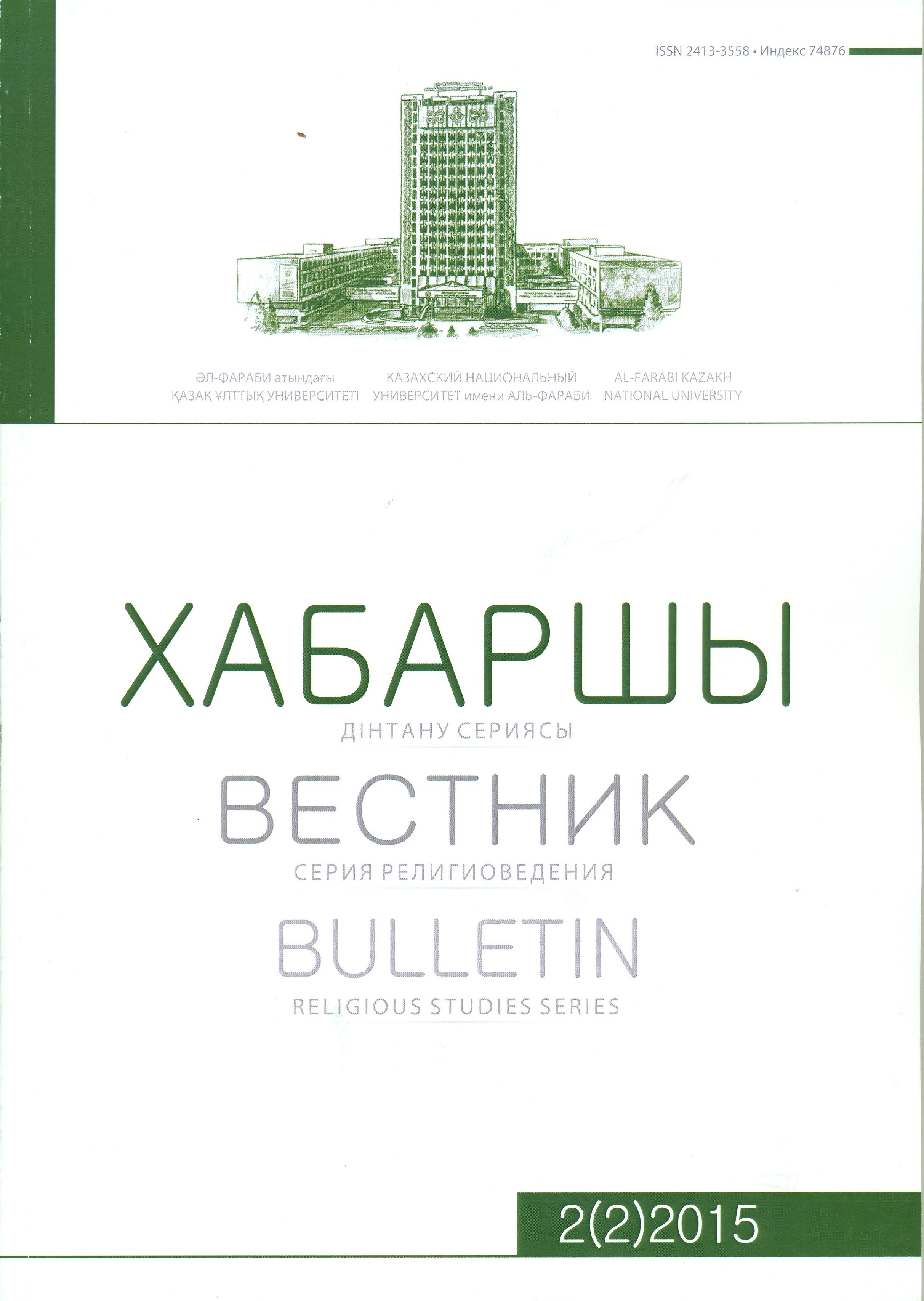Islam and al-Farabi.
DOI:
https://doi.org/10.26577/EJRS-2015-2-19Keywords:
society, the state, politics, governor, identity, Islam, the Muslim religion, Allah (God), «happiness», «prosperity», «justice», the city «virtuous city», the ideal state, the Arab Caliphate, the imam, Sunni, Shia,Abstract
In this work, philosophical, social and political legacy of al-Farabi is considered in the context of the Muslim religion – Islam. The author sees in formation of al-Farabi as an outstanding thinker played a set at the time of dialogue and interaction turksoy and arab civilization and culture in the world. Al-Farabi was formed as a person, a scientist – thinker of global human scale, absorbing their positive results. The author tries to show how the sacredness of the religious with the secular organically combined methodological approach – analyzing the problems of objective reality – human, social, government and so on. Relations in the legacy of al-Farabi.References
1 Аль-Фараби. Философские трактаты.– Алма-Ата, 1972. – С.288-89, 317-319; Касымжанов А.Х. Аль-Фараби.– М.:Мысль, 1982
2 Белая кость прошлого. Наши современники.– Алматы,1994. – С. 9.
3 Аль-Фараби. Трактаты о религии / перевод Б. К Тайжанова. – Возвращение Учителя.– Алматы: Жазушы, 1975.
4 Лукпанов А. И. Политическая философия аль-Фараби // Материалы
1 Международного Фараби форума «Абу Наср аль-Фараби в диалоге
времен». – Алматы, 2014. – С. 287.
5 Орынбеков М. С. Генезис религиозности в Казахстане – Алматы, 2005. – С. 185 и далее.
6 Религиоведение. Энциклопедический словарь / под ред. Забияко
А.П., Красникова А.Н., Элбакян Е.С. – Акад. Проспект. – М., 2006.
2 Белая кость прошлого. Наши современники.– Алматы,1994. – С. 9.
3 Аль-Фараби. Трактаты о религии / перевод Б. К Тайжанова. – Возвращение Учителя.– Алматы: Жазушы, 1975.
4 Лукпанов А. И. Политическая философия аль-Фараби // Материалы
1 Международного Фараби форума «Абу Наср аль-Фараби в диалоге
времен». – Алматы, 2014. – С. 287.
5 Орынбеков М. С. Генезис религиозности в Казахстане – Алматы, 2005. – С. 185 и далее.
6 Религиоведение. Энциклопедический словарь / под ред. Забияко
А.П., Красникова А.Н., Элбакян Е.С. – Акад. Проспект. – М., 2006.
Additional Files
How to Cite
Lukhpanov А. I. (2016). Islam and al-Farabi. Eurasian Journal of Religious Studies, 2(2). https://doi.org/10.26577/EJRS-2015-2-19
Issue
Section
Religious Studies













